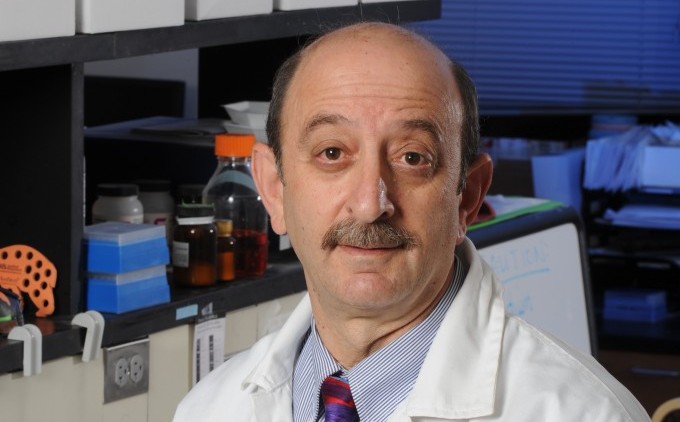
This Little Piggy Went To Market: The Rest Of The Story
Swine production is changing. It’s happening primarily through the implementation of technological advancements, especially those involving genetics and genomics, the study of heredity and DNA. Iowa State University is one of the world’s leaders in these developments and their applications.
Genetics has played a role in improving the pig ever since the beginning of domestication. But now it’s advancing at ever increasing rates for the benefit of both producers and consumers. Many people, including students new to agriculture and even some farmers, would be quite amazed at the level of technology that’s widely used in swine production today.
Over the past 20 years, rapid evolution of gene technology has been advancing the way swine breeders and producers evaluate pigs and select those with the best genes to be parents. In earlier years, producers visually chose pigs based on growth or apparent fat levels or they used weighing and ultrasonic techniques. Today those decisions are informed by the use of individual genes for determining the next generation. This gene marker testing technology consists of identifying genes within each animal and then selecting those animals with the “right stuff,” which is a quite different approach than the many genetic modification improvements made in plant production.
While gene-marker technology has been used since the early 1990s to remove deleterious genes like the one linked to porcine stress syndrome, swine breeders today have new gene marker tools, many discovered at Iowa State, commercially available to them. Using these gene tests, they can select parents at relatively low costs for traits that include number of pigs born, feed efficiency and growth, reduced backfat and feed intake, and pork quality.
But science is not standing still. These tests are but the first wave of the genomic technology that will continue to revolutionize production efficiency for pork producers.
Advancements are coming together fast for improvement of many livestock species. Last December, the completion of the first draft of the pig genome sequence was announced. It joined the advances of other species including chickens, cattle and horses. The swine genome sequence is the first complete unraveling of the pig’s genetic code. It helps reveal the secrets of the genome, which will allow researchers to understand what individual genes control individual traits in the pig and also how those genes work in concert for complex biological functions.
We already are using a technology called a SNPchip, which contains 60,000 marker genetic tests and allows us to genotype each pig for 60,000 markers across the genome. This will alter our selection process, moving farther away from a handful of marker tests and closer to what is called genomic selection involving thousands of markers simultaneously.
This unraveling of the genetic code and the understanding that will follow in the next 3 to 10 years has real value for all of us. Why? Because the pig is an outstanding model species for human biology and new approaches to human health problems. But we cannot lose sight of the real, direct and critically important goals of animal genetics:
• to improve sustainable production of meat, milk, eggs and fiber;
• to create tastier, healthier, safer and more nutritious foods;
• to reduce animal disease and improve animal welfare; and
• to combat hunger both here and worldwide.
Today, producers and consumers are reaping the rewards of new genetic marker technology. Sows produce more pigs. Pigs consume less feed and grow faster and leaner. Pork quality has much improved taste and tenderness. Applications to ensure pigs lead healthier lives are underway.
So when you consider what has happened and is happening to “get this piggy to market,” please remember that science-based solutions, many developed at ISU, are playing a role to improve animal agriculture worldwide.
Max Rothschild is a Charles F. Curtiss Distinguished Professor of Agriculture and Life Sciences in Animal Science and the M.E. Ensminger Endowed Chair in International Animal Agriculture.



